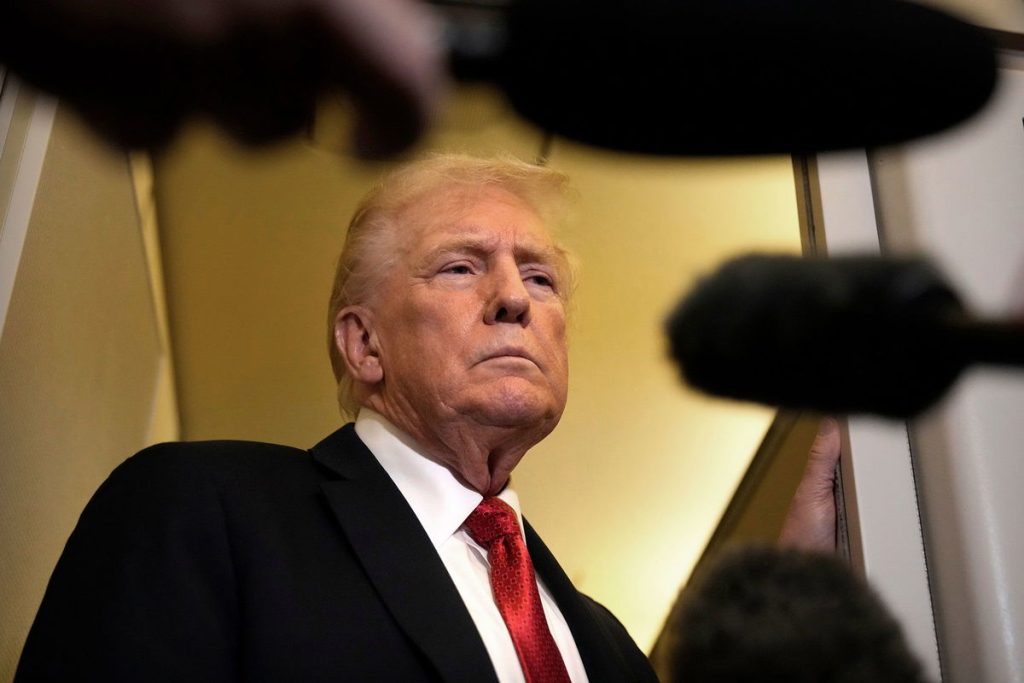Listen to the article
In a series of recent statements, President Donald Trump has repeatedly mischaracterized the Insurrection Act, a collection of 18th and 19th century laws that grants presidents authority to deploy military forces domestically under certain conditions.
CNN fact-checker Daniel Dale identified multiple inaccuracies in Trump’s public comments about this controversial legislation, which has gained renewed attention amid the former president’s discussions about potentially using it to deploy troops to American cities.
Trump’s most glaring misstatement came Sunday when he claimed that invoking the act would mean “there’s no more court cases.” Legal experts emphatically reject this assertion. William Banks, a Syracuse University law professor, called the claim “categorically false,” explaining that while the president has significant discretion under the act, courts would absolutely review any implementation for compliance with both the law’s requirements and constitutional boundaries.
Harvard law professor Jack Goldsmith noted that “every single word of the Insurrection Act will be intensely contested in court should the president invoke it.” While the law’s broad language might give a president initial advantages in litigation, courts retain oversight authority, particularly if a president’s actions appear to exceed legal boundaries or constitutional limits.
The Insurrection Act’s text provides presidents with sweeping but not unlimited power. It permits military deployment when the president “considers that unlawful obstructions, combinations, or assemblages, or rebellion” make normal law enforcement impracticable, or to suppress situations that deprive citizens of constitutional rights when states fail to protect those rights.
Trump also significantly exaggerated the historical use of the act, claiming one unnamed president invoked it “28 times during the course of a presidency.” Research by the Brennan Center for Justice contradicts this, showing that President Ulysses S. Grant holds the record with just six invocations during the post-Civil War era amid widespread white supremacist violence.
The former president further claimed that “50% of the presidents” have used the Insurrection Act. In reality, the Brennan Center found only 17 of 45 presidents (about 38%) have invoked it or its precursor laws – still a substantial number, but not the majority Trump described.
Important historical context went unmentioned in Trump’s remarks. Of the 30 total invocations throughout American history, nearly two-thirds occurred more than a century ago. The act hasn’t been used since 1992, when President George H.W. Bush deployed federal forces during the Los Angeles riots following the Rodney King verdict – and that was at the request of California’s governor.
Georgetown University law professor Stephen Vladeck noted that presidents have rarely used the act against state opposition. The few exceptions involved universally recognized threats like the British invasion during the War of 1812 or instances where states themselves were violating federal law, as during school desegregation in Little Rock, Arkansas.
Recent presidents who invoked the act include John F. Kennedy and Lyndon B. Johnson, who used it during civil rights crises in the 1960s. Kennedy deployed troops when Alabama Governor George Wallace physically tried to block Black students from entering the University of Alabama. Johnson protected civil rights marchers in Selma and responded to urban unrest following Martin Luther King Jr.’s assassination.
The renewed interest in the Insurrection Act comes as Trump has criticized legal challenges to his deployment of National Guard troops to cities like Los Angeles, Portland, and Chicago under narrower authorities. These deployments have faced judicial scrutiny, prompting Trump’s apparent interest in the broader powers the Insurrection Act might provide.
While the act does grant presidents significant authority, legal scholars emphasize that this power remains subject to constitutional constraints and judicial review – contrary to Trump’s suggestion that invoking it would place his actions beyond legal challenge.
Fact Checker
Verify the accuracy of this article using The Disinformation Commission analysis and real-time sources.




9 Comments
This is a helpful fact-check on Trump’s inaccurate statements about the Insurrection Act. It’s important to have a clear understanding of the law’s scope and limitations, especially given the renewed interest in using it.
This is an important issue that deserves careful consideration. I appreciate the factual approach taken in this article to examine the president’s statements and the legal realities.
The legal experts make a strong case that invoking the Insurrection Act would not eliminate court oversight or judicial review. Any such action would face intense scrutiny and challenge.
That’s a good point. The president doesn’t have unchecked power under this law, and any attempt to use it would face significant legal hurdles.
Fact-checking is so important when it comes to understanding the limits of presidential authority. This article does a good job of highlighting the inaccuracies in Trump’s statements.
Agreed. Transparent and objective reporting on these issues is essential for citizens to make informed decisions.
While the Insurrection Act grants the president certain powers, it’s reassuring to know that the courts would closely examine any invocation of the law. Maintaining checks and balances is crucial.
The legal analysis provided in this article helps clarify the nuances of the Insurrection Act. It’s a complex law that shouldn’t be mischaracterized for political purposes.
I’m curious to see how this issue develops, especially in the context of ongoing political tensions and debates around the role of the military in domestic affairs. It’s a complex and sensitive topic.